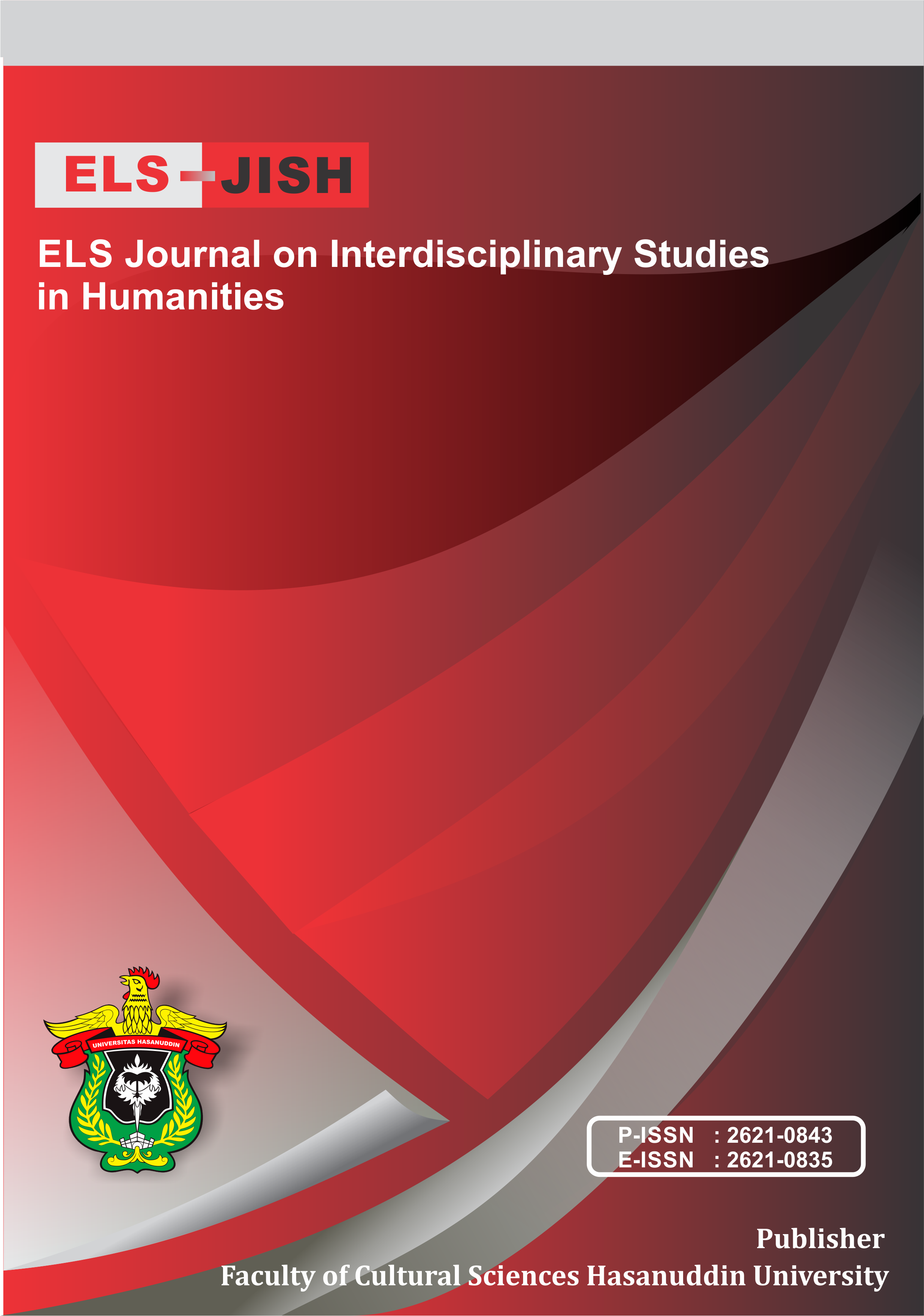The Use of Action Research in EFL Socio-professional Context: Students-teachers’ Perceptions
DOI:
https://doi.org/10.34050/elsjish.v4i2.10876Keywords:
Action Research, Socio-professional Context, Student-teachersAbstract
The present study intends to shed light on student-teachers perceptions towards using action research in English language classes. This study aims at ensuring full understanding of the term “action research” by student-teachers, exploring their perceptions toward using it, identifying the problems that student-teachers may face in a socio-professional context in the intercourse to the use of action research, and showing if they have any future intentions to use it in their classes. Fifty students were chosen randomly from Diyala University, College of Education for Human Sciences, English Department to represents the study sample. A questionnaire of four parts that the researchers constructed was adapted as a primary study instrument. The final statistical results show that student-teachers have positive perceptions toward using action research in the English language teaching classes.Downloads
References
Al-Obaydi, L. H. (2014). The Impact of Action Research Programme on EFL Student-Teachers' Teaching Practice and Students' Achievement in English. Dissertation. University of Baghdad. Baghdad.
Barnawi, B., Junaedi, J., & Rido, R. (2019). Improve Teachers' Ability in Compiling Classroom Action Research Through Workshop Activities. Action Research Journal Indonesia (ARJI), 1(1), 1-12.
Borgia, E. T., & Schuler, D. (1996). Action Research in Early Childhood Education E. D. Team (Ed.) doi:ED401047
Burns, A. (2009). Action Research in Second Language Teacher Education. In A. Burns & J. C. Richard (Eds.), The Cambridge Guide to Second Language Teacher Education. Cambridge: Cambridge University Press.
Calderhead, J., & Shorrock, S. (1997). Understanding Teacher Education: Case Studies in the Professional Development of Beginning Teachers. London: Falmer.
Carr, W. (1989). Understanding quality in teaching. In W. Carr (Ed.), Quality in Teaching: arguments for a reflective profession. Brighton: Falmer Pres.
Celce-Murcia, M. (2001). Teaching English as a Second or Foreign Language. Boston: Heinle & Heinle.
Corey, S. M. (1953). Action Research to Improve School Practices. New York: Bureau of Publications, Teachers' College, Columbia University Press.
Ebbutt, D. (1985). Educational action research: some general concerns and specific quibbles. In R. Burgess (Ed.), Issues in educational research: qualitative methods. Lewes: The Falmer Press.
Elliott, J. (1991). Action Research for Educational Change. Milton Keynes: Open University Press.
Gebhard, J. G. (2006). Teaching English as a Foreign or Second Language. Michigan: The University of Michigan Press.
Hien, T. (2009). Why is Action Research Suitable for Education? Hanoi, Vietnam: Vietnam National University.
Hopkins, D. (1985). A Teacher's Guide to Classroom Research. Philadelphia: Open University Press.
Johnson, K., & Johnson, H. (1984). Encyclopedic Dictionary of Applied Linguistics. Malden: Blackwell Publishers.
Kemmis, S., & McTaggart, R. (1990). The Action Research Planner. Geelong: Deakin University Press.
Koshy, E., Koshy, V., & Waterman, H. (2010). What is Action Research? (ONLINE). from http://www.sagepub.com/upmdata/36584_01_Koshy_et_al_Ch_01.pdf
Lewin, K. (1946). Action research and minority problems. In G. W. Lewin (Ed.), Resolving Social Conflicts. New York: Harper & Row.
McCutcheon, G., & Jurg, B. (1990). Alternative Perspectives on Action Research. Theory into Practice, 24(3).
McKernan, J. (1991). Curriculum Action Research. A Handbook of Methods and Resources for the Reflective Practitioner. London: Kogan Page.
Mills, G. E. (2000). Action Research: A Guide for the Teacher Researcher. Boston: Merrill.
Mtika, P. D. G. (2008). Teaching Practice as a Component of Teacher Education. Malawi: an Activity Theory Perspective. Unpublished Ph.D. Dessertation. University of Nottingham. Nottingham.
Nashruddin, N., & Ningtyas, P. R. (2020). English as Foreign Language (EFL) teacher’s questioning strategies in classroom interaction. Utamax: Journal of Ultimate Research and Trends in Education, 2(1), 5-11.
Nashruddin, N., Ningtyas, P. R., & Ekamurti, N. (2018). Increasing the Students’motivation in Reading English Materials through Task-Based Learning (TBL) Strategy (A Classroom Action Research at the First Year Students of SMP Dirgantara Makassar). Scolae: Journal of Pedagogy, 1(1), 44-53.
O'Leary, Z. (2004). The Essential Guide to Doing Research. Thousand Oaks, CA.: Sage.
O’Brien, R. (2001). An Overview of the Methodological Approach of Action Research. João Pessoa: Universidade Federal da Paraíba.
Rahman1, F., Amir, P. A. &Tammasse (2019).Trends in Reading Literary Fiction in Print and Cyber Media by undergraduate Students of Hasanuddin University. International Journal of Education and Practice. Vol. 7, No. 2, pp. 66-77. DOI: 10.18488/journal.61.2019.72.66.77
Ritonga, S. N. A., Nasmilah, N., & Rahman, F. (2020). The Effect Of Motivation And Anxiety On Students’ Speaking Performance: A Study At Dayanu Ikhsanuddin University. ELS Journal on Interdisciplinary Studies in Humanities, 3(2), 198-213. https://doi.org/10.34050/els-jish.v3i2.10263
Sabar, N. (2004). From Heaven to Reality Through Crisis: Novice Teachers as Migrants. Teaching and Teacher Education, 20, 145–161.
Sagor, R. (2005). The Action Research Guidebook: A Four-Step Process for Educators and School Teams. Thousand Oaks: Corwin Press.
Simmons, J. M. (1985). Readings for TE 870 A & B: Classroom Analysis. East Lansing, MI: Michigan State University, College of Education.
Wang, J. (2001). Contexts of Mentoring and Opportunities for Learning to Teach: A Comparative Study of Mentoring Practice. Teaching and Teacher Education, 17(1), 51–73.
Wilkin, M. (1992). On the Cusp: From Supervision to Mentoring in Initial Teacher Training. Cambridge Journal of Education, 22(1), 79–90.
Zuber-Skerrit, O. (1992). Improving Learning and Teaching Through Action Learning and Action Research. Paper presented at the The HERDSA Conference, University of Queensland.
Downloads
Published
How to Cite
Issue
Section
License
Copyright (c) 2021 Liqaa Habeb Al-Obaydi, Nashruddin, Fakhriawan Fathu Rahman, La Ode Achmad Suherman

This work is licensed under a Creative Commons Attribution-NonCommercial-ShareAlike 4.0 International License.

















